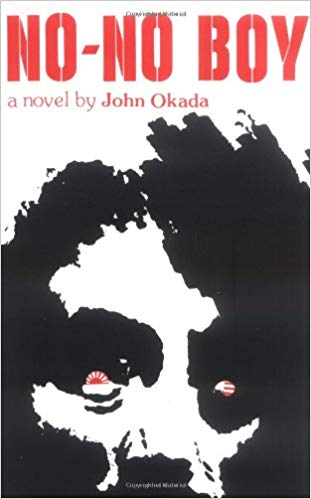John Okada – No-No Boy Audiobook
John Okada – No-No Boy Audiobook

Quickly one of the very best books I have ever before checked out (I studied English in university. I’ve read a LOT of excellent publications, including this one which was a project for an Asian-American literature class), extremely well-done as well as thought prompting. No-No Boy Audiobook Free. John Okada is entitled to a lot more recognition as a writer and i’m simply really glad that there’s lastly a Kindle variation available for this.
A great deal of my classmates really did not like this publication, yet it was a really tiny class so I have a basic concept as to why:
They were rather sheltered as well as they missed its factor.
This is the only book I’ve researched where individuals didn’t agree on the tone of the unique – generally, whether people like something or otherwise, they can acknowledge that it’s enthusiastic, or dark, or terrifying, or what have you. I saw this publication as dark but ultimately confident; those who didn’t like it simply saw the darkness … which is especially interesting to me because we began the semester reading America Remains in The Heart, which is among the most dismal novels I have actually checked out. Most of us settled on that a person. so why did this one cause such dispute?
Maybe it’s truthfully just because it’s created much better. Okada is very skilled as well as very complex, there’s a great deal of nuance in this and also a great deal of final thoughts that could be drawn from the personalities and what they say and do. If you’re hesitant regarding paying money for this, perhaps try a collection first. It’s not a lengthy book as well as a pretty fast read, no dragging descriptions or flowy language. I solved into it and also completed it in less than a week, and also I’ve read it 5 or 6 times in 3 years. Love it or otherwise, in my viewpoint, it’s a work of genius.No-No Child is a novel written by John Okada in 1957. No-No Child has to do with Ichiro Okada, a Seattle-born man of Japanese descendent, returning to Seattle, his hometown, after being locked up during The second world war for not knocking the emperor of Japan as well as refusing to report for U.S. armed forces task.
I learned about this book as a result of some recent dispute over the re-publication of this publication by Penguin Books. Penguin claims the job was not effectively copyrighted and is public domain residential property. Because 1976, University of Washington Press had actually been releasing No-No Child (and also sending out nobilities to the Okada family). John Okada – No-No Boy Audio Book Download. I purchased and also read the UW Press version.
Ichiro is steered clear of by the Japanese Americans that served in the military and also saw him as a traitor to the United States. He is steered clear of by Whites since he looked Japanese. He was stuck in a no-man’s land of being viewed as neither Japanese neither American. While this book is fiction, the emotions and circumstances were actual. The Japanese Americans returning to their homes after the WWII internment was incredibly challenging, and also for those that were “no-no young boys”, their experiences needed to have been heart-wrenching. This book captures powerful feelings.
What makes this story remarkable is that it was composed at a time when nobody discussed the Japanese American experience and just how it influenced them. Okada does a wonderful work of offering the almost hopeless, determined issue encountered by Ichiro. Okada’s creating design is almost poetic; it has rhythm.
Okada does an exceptional work of defining life in post-war Seattle, recognizing streets and also landmarks by name. One curious technical mistake is a reference to seeing the local Seattle baseball group on television. At the time, tvs were offered to the general public yet prohibitively expensive for households, particularly Japanese returning from internment camps where whatever had been taken from them. There was additionally no telecasted Seattle (Rainiers) baseball in the years immediately after the Japanese return to the shore (regarding 1947). The Seattle Rainiers didn’t telecast their video games till 1956. It took me a couple of days of research to check this out consisting of seeing a 90-minute docudrama on the background of the Seattle Rainiers.
I rate this publication 5 stars because it evokes the emotional strain Japanese Americans need to have felt after the battle as well as because it was a landmark magazine for its time. John Okada offers you insight right into the effect of President Roosevelt’s Exec Order 9066 on his protagonist Ichiro yet multiply that by 120,000 others told to load their present presence into two travel suitcases as well as show up at one or an additional of the prisoner-of-war camp being developed for them after the assault on Pearl Harbor, later on identified by the High court that had sanctioned it as racist determined and also releasing the interned January 1, 1945; camps nearby end of 1945. Hawaii with a 40% Japanese populace had not followed suit.